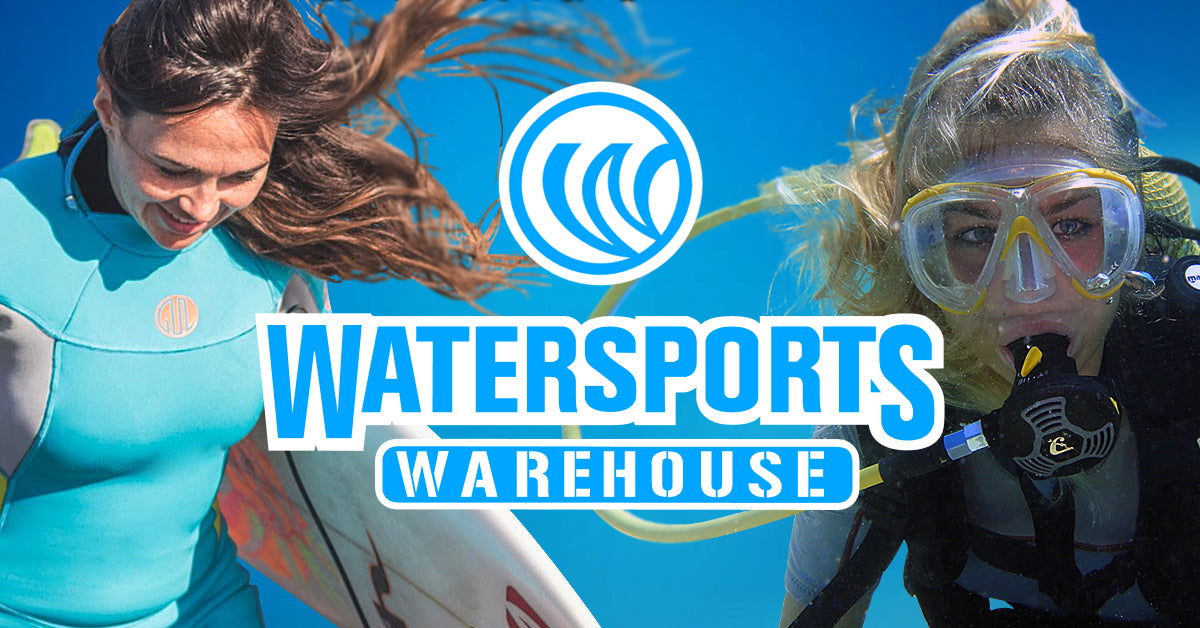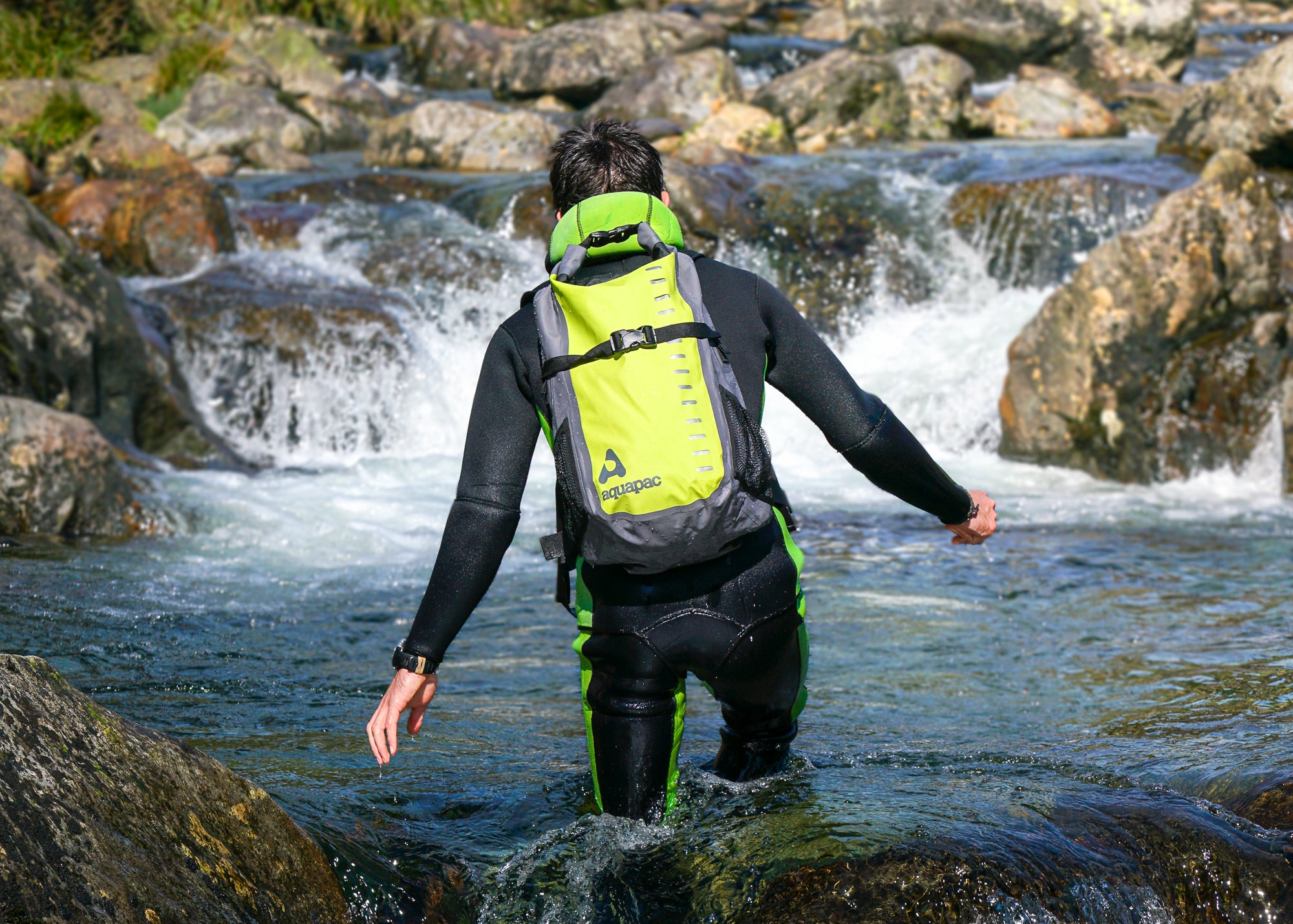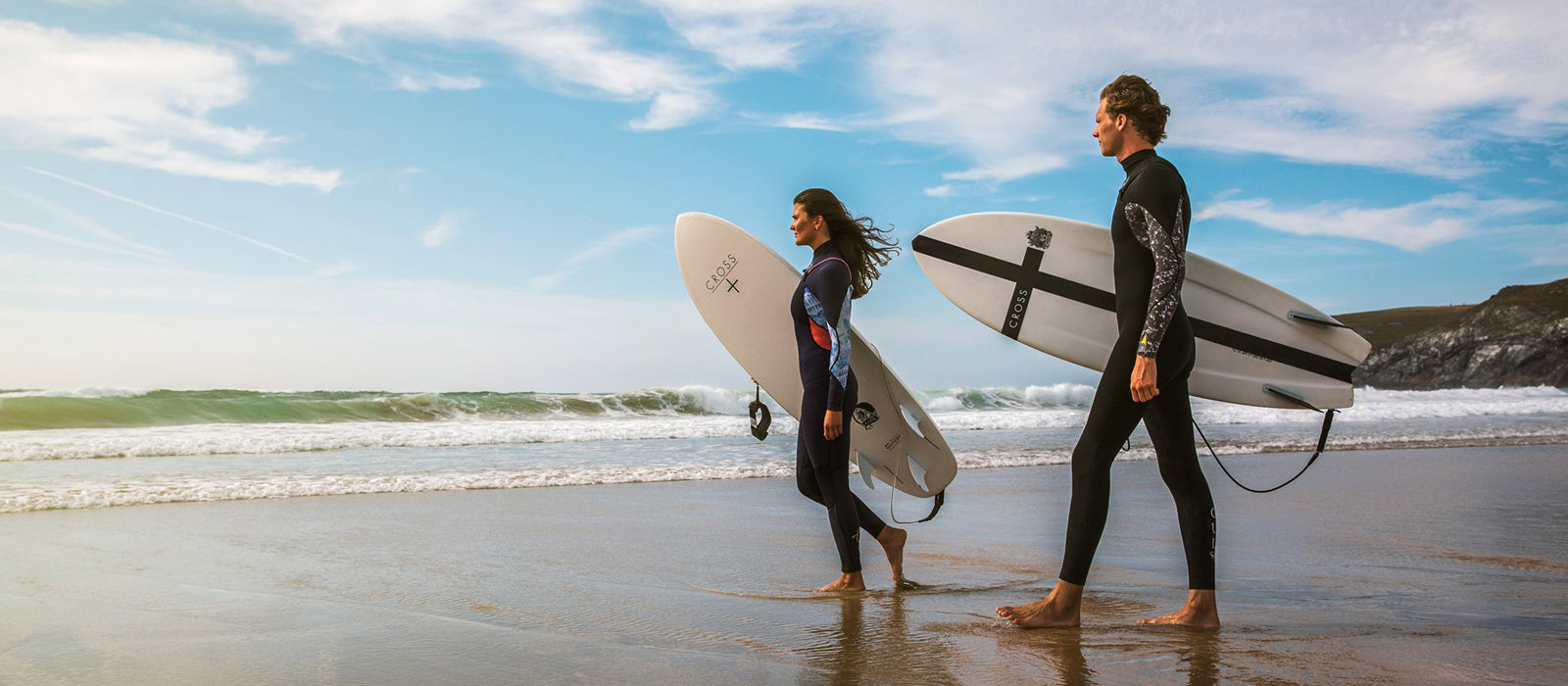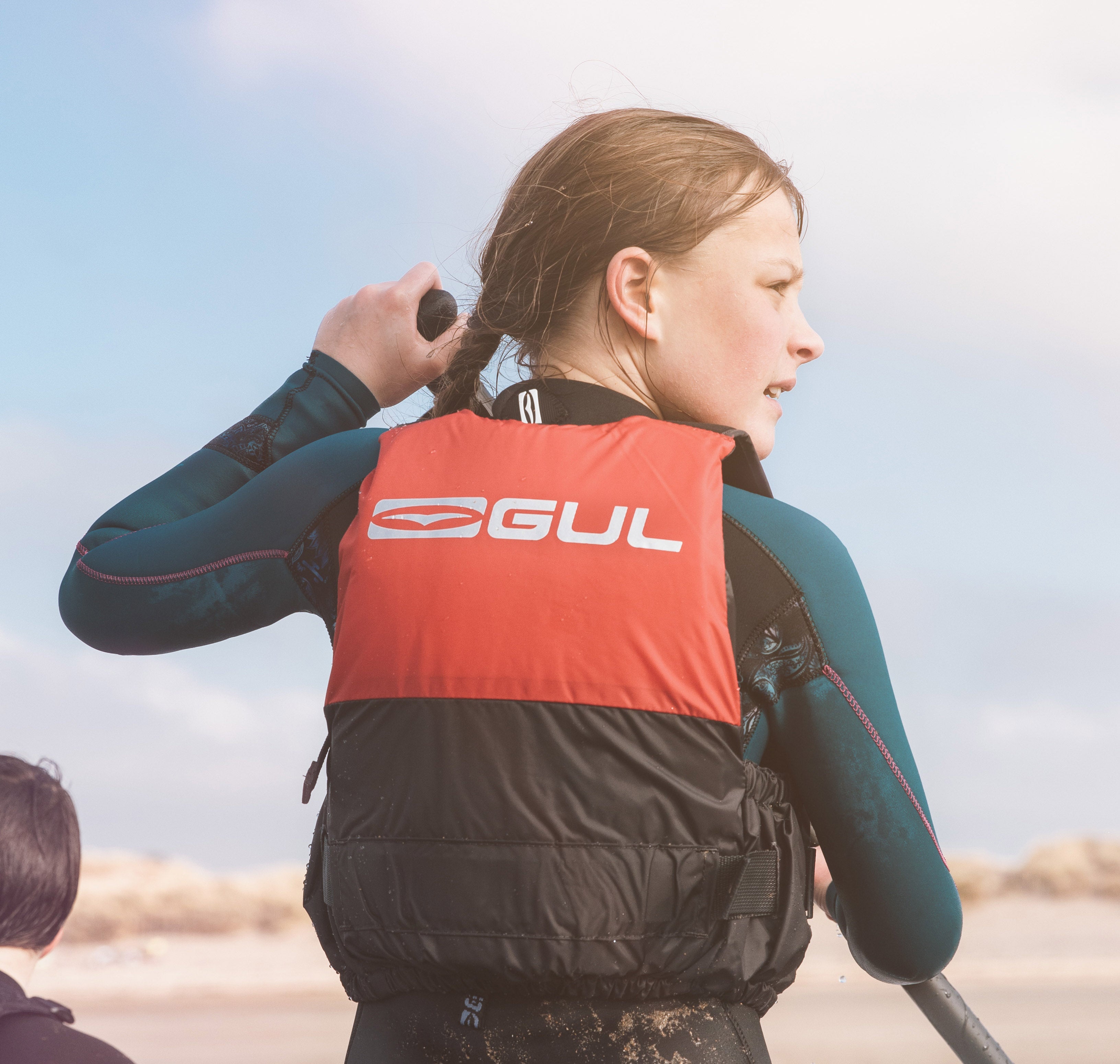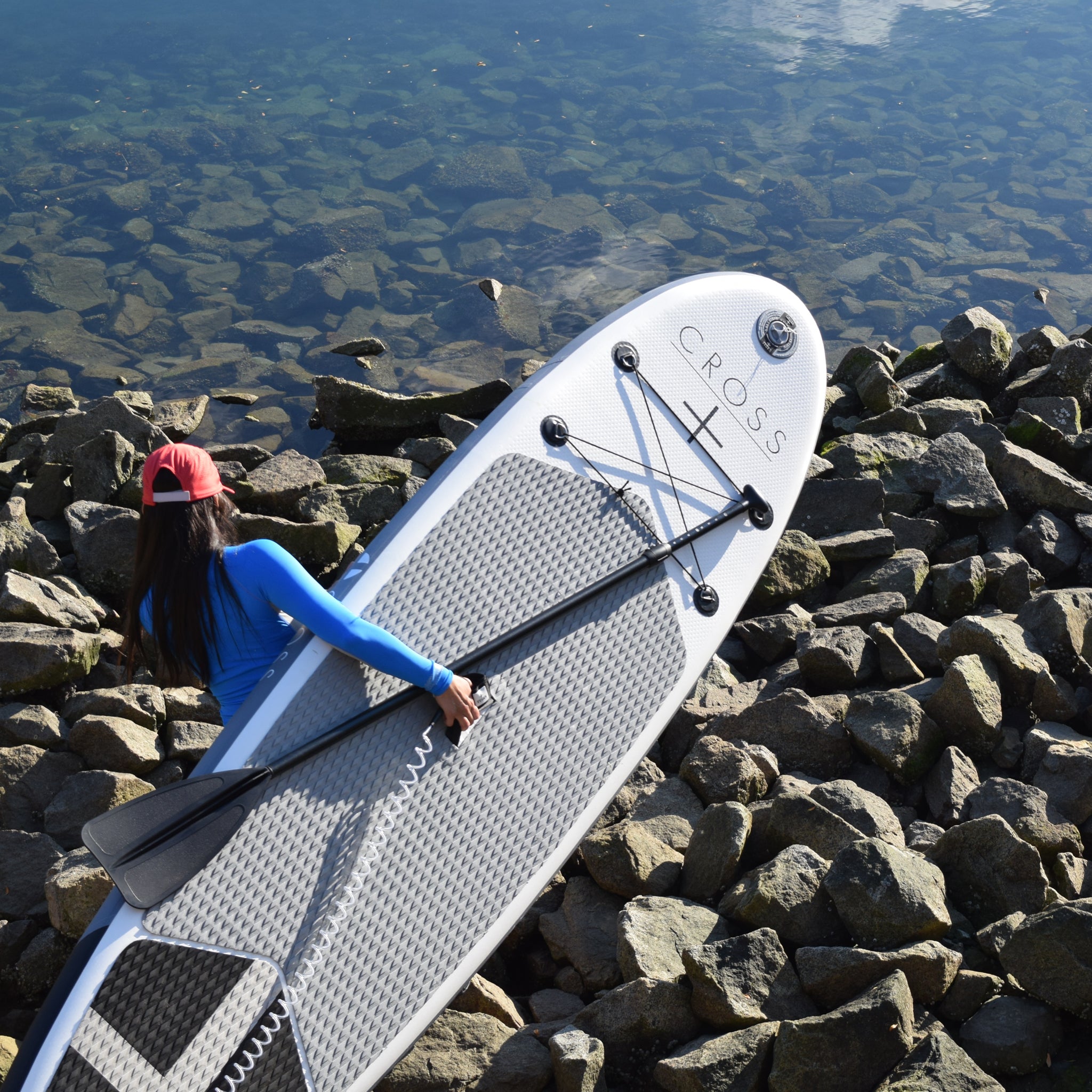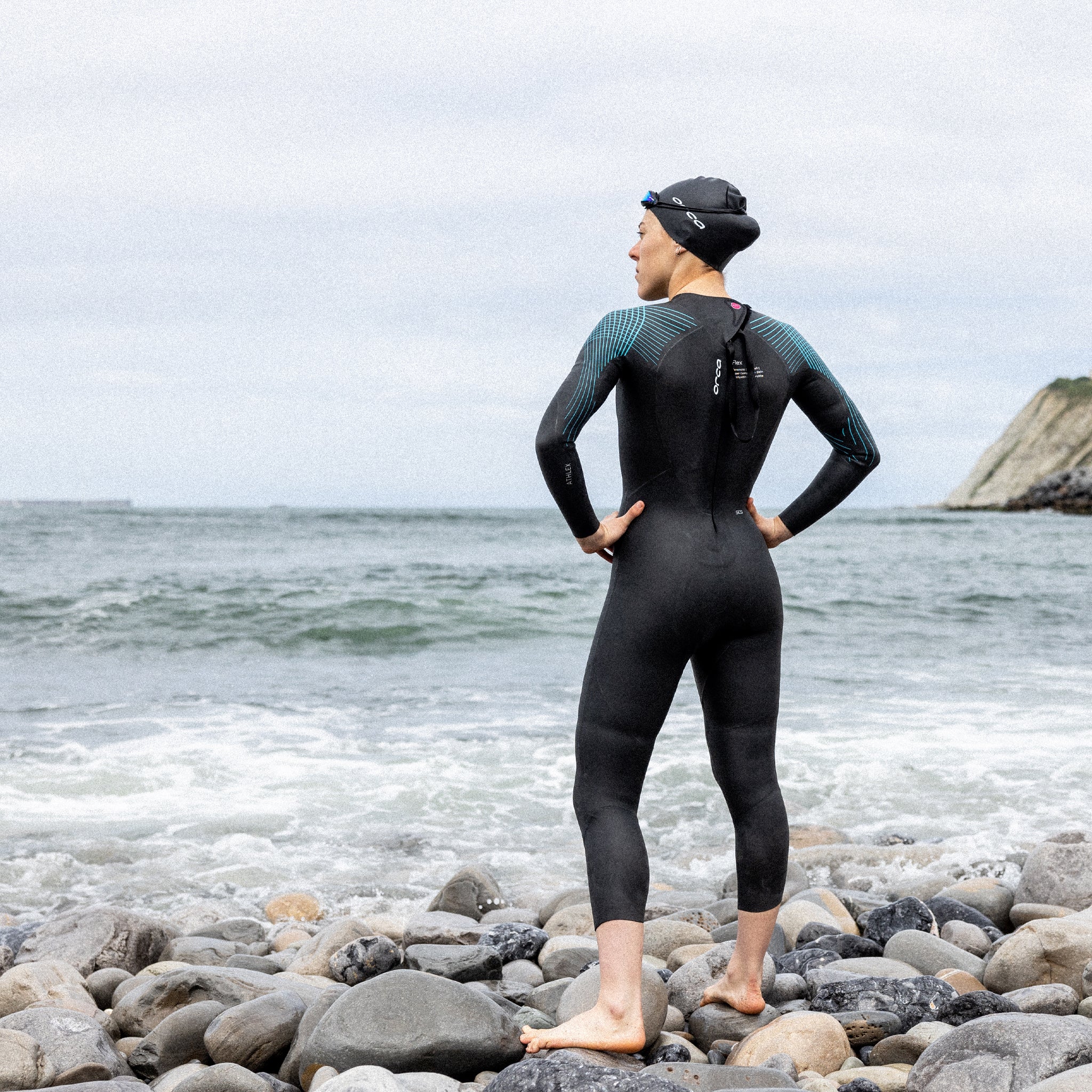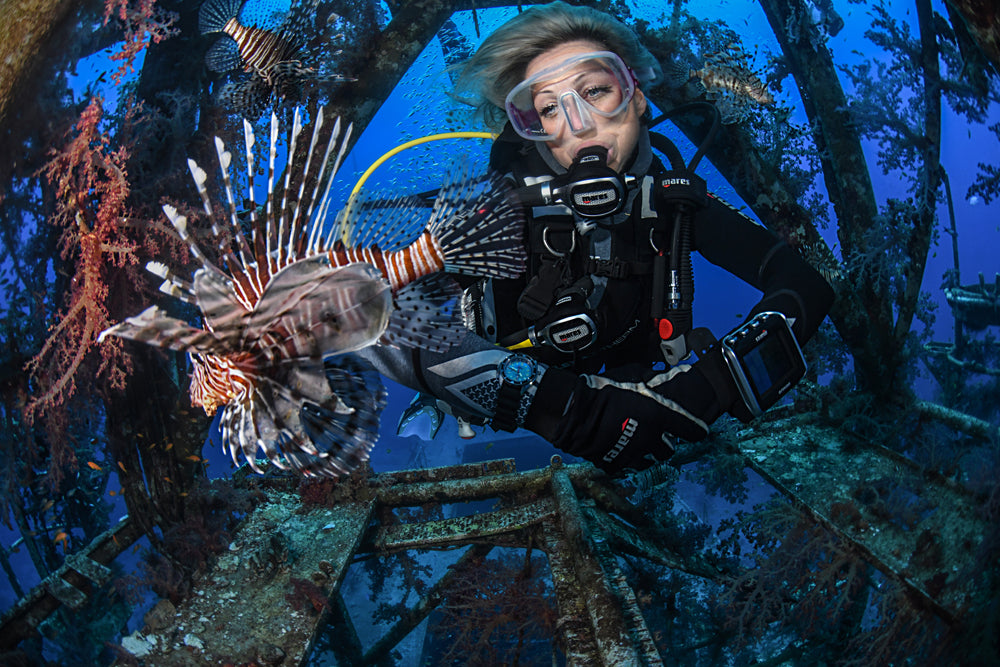Menu
Your cart is empty
Looks like you haven't added anything to your cart yet
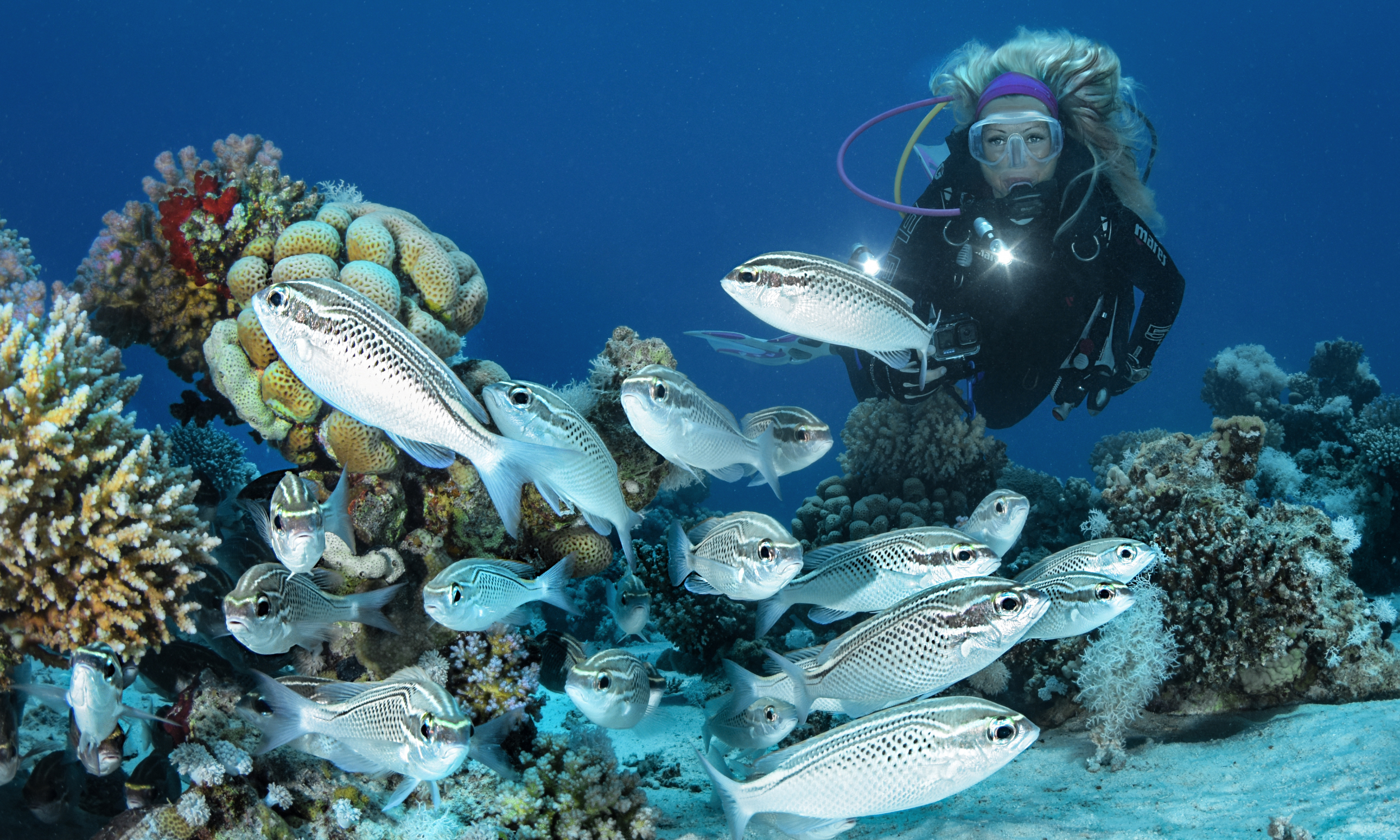
A Guide to Scuba Diving Equipment and Essentials
Scuba diving isn't just a recreational activity; it's a transformative journey into the mesmerising depths of the ocean. To embark on this adventure safely and confidently, you need the right equipment – a meticulously selected array of gear designed to facilitate exploration while ensuring your comfort and safety underwater. In this comprehensive guide, we will meticulously explore each facet of scuba diving equipment, examining its functionality, significance, and the myriad options available to divers of all levels.
Scuba Diving Accessories:
-
BCD: The BCD, or Buoyancy Control Device, stands as a central piece in a diver's kit. Serving as both a flotation aid and a harness for securing other equipment, the BCD enables divers to achieve neutral buoyancy underwater, ensuring precise control and comfort during the dive. With integrated inflation and deflation mechanisms, divers can effortlessly adjust their buoyancy, maintaining stability at different depths. A BCD boasts attachment points for accessories like dive lights, underwater cameras, and safety gear, enhancing its versatility and utility. Whether exploring vibrant coral reefs or navigating mysterious wrecks, a dependable BCD is essential for every diver, laying the groundwork for safe and gratifying underwater explorations.
-
Regulator & Octopus: Regulators are the lifeline for every diver, delivering air from your scuba cylinder as you breathe naturally and comfortably underwater. An Octopus serves as an alternate air source in case of primary regulator failure, providing an additional layer of safety and redundancy for divers in emergency situations.
-
Gauges/Console: Dive Gauges are the dashboard of your dive, providing vital information about your dive status and equipment functionality. Depth gauges, pressure gauges display critical metrics such as depth, pressure, and remaining air supply, allowing divers to monitor their dive profile and equipment performance in real time.
-
Cylinder & Accessories: While an air cylinder is essential for scuba diving, having your own is not a requirement as many dive centres will have cylinders available to hire, check beforehand. If you are a regular diver it may be more advantageous to have your own suitable dive cylinder(s). Managing your air supply is paramount in scuba diving, and cylinder accessories are essential for ensuring the reliability and functionality of your air tank. Always inspect the cylinder ‘o’ ring prior to connecting your regulator, having spare ‘o’-rings are always useful. When setting up your dive gear the BCD Cam band securely holds the cylinder in place, cylinder mesh allows for some extra grip for your BCD Cam band and helps protect the cylinder, a tank boot will protect the bottom of the tank and prevent it from rolling around in the back of your car.
-
Weight: Dive weights are of course essential for scuba diving but of course it’s not expected that you would have your own. You would usually be able to hire a weight belt and weights again depending on where you are diving/type of wetsuit/dry suit used, check beforehand. If you are a regular diver it may be more advantageous to have your own suitable weight belt/weights set up to your own diving requirements.
-
Dive Computer: Using a Dive Computer Dive is an indispensable tool for modern divers, offering real-time monitoring of dive parameters and ensuring adherence to safe diving practices. A dive computer tracks essential metrics such as depth, bottom time, and decompression limits, providing critical information to help you plan and execute dives within safe limits and avoid decompression sickness.
-
Compass: As part of learning to scuba dive you will learn about the use of navigating a dive using a compass. Underwater navigation can made easier with the correct use of a Compass assisting divers by maintaining course headings and navigating unfamiliar terrain. Top tip: buy your dive gauges with a compass included then it’s always with your dive kit.
-
Mask: A comfortable, well-fitting mask is essential for every diver, creating an air pocket around your eyes and ensuring clear vision underwater. Whether you prefer a traditional single-lens mask, twin lens design, solid black silicone or clear silicone, whatever type of mask you choose should be the best for you offering great visibility and enjoyment during dives. Having your own mask, snorkel and fins are considered the building blocks for your scuba diving equipment.
-
Fins: Fins are the propulsive force behind every dive, allowing you to move efficiently and gracefully through the water. Available in a variety of styles and configurations, fins provide thrust and manoeuvrability, enabling you to navigate currents, explore underwater terrain, and conserve energy during extended dives.
-
Wetsuit / Drysuit: Different environments will determine what type of exposure protection you may require when scuba diving. Wetsuits are your second skin underwater, providing thermal insulation and protection against abrasions and stings. Available in various thicknesses and styles to suit different water temperatures and diving environments, wetsuits ensure comfort, warmth, and mobility during dives, allowing you to explore and enjoy the underwater world to the fullest.
-
Safety Equipment: Diving safety should always be a top priority, and safety equipment serves as a crucial line of defence against potential hazards. Surface marker buoys (SMBs) enhance diver visibility at the surface, dive reels aid in underwater navigation, and emergency whistles provide an audible signal on the surface in case of distress, ensuring effective response in emergency situations.
-
Clips, Lanyards, Slates: You can never have too many clips and lanyards. Often overlooked but indispensable, these accessories play a vital role in organising your dive equipment and communication during dives. Clips and lanyards securely fasten essential items such as dive lights or cameras to your gear, while slates provide a surface for jotting down crucial information or communicating with dive buddies particular when sign language just doesn’t convey what you want to communicate!
-
Bags: Dive bags are the unsung heroes of dive travel, providing convenient and organised storage solutions for your gear. Whether it’s accommodating a weekend’s worth of dive kit, travelling to exotic dive locations or packing for a liveaboard holiday. You want to consider what’s essential when choosing the bag size and volume and of course any airline restrictions. Small dry bags are great for keep sensitive equipment protected from water as much as possible, mesh dive bags are lightweight and easy to pack and help facilitate quick rinsing and drying of scuba gear.
-
Books and Dive Guides: Knowledge is a diver's greatest asset, and dive guides and books are invaluable resources for expanding your understanding of marine environments and dive sites. From marine life identification guides to detailed dive site maps and exploration tips, these resources offer insights that enrich your diving experience and deepen your appreciation of the underwater world.
-
Corrective Vision Lenses if you wear glasses to help see more clearly in your daily life the chances are you may need to consider using a suitable mask with corrective vision lenses ie: prescription lenses. Your prescription may require lenses to be made to your exact requirements or you may be able to opt for off-the-shelf lenses which are available for selected scuba masks This will ensure clear vision for those requiring prescription eyewear, facilitating confident exploration and navigation in the underwater environment
- Spares Kit – A Save a Dive Kit is a must for any dive trip but particularly if you are holidaying and scuba diving on a liveaboard, those little replacement/spare parts can make the difference to being able to get in the water. Spare mask straps, fins straps, lanyard & clips, cylinder O-rings, regulator mouthpieces, mask anti-fog spray, a back-up mask, even an extra snorkel.
At Watersports Warehouse, we recognise the critical role that quality equipment plays in enhancing your diving experience. That's why we proudly stock the best brands in the industry, including Mares, Cressi, and Fourth Element. Renowned for their innovation, durability, and performance, these brands have earned the trust of divers worldwide, ensuring that you can explore the underwater world with confidence and reliability.
In addition to individual equipment pieces, we offer meticulously curated package deals tailored to cater to divers of all levels. Our BCD and regulator package deals, featuring esteemed brands such as Cressi and Mares, provide comprehensive solutions for buoyancy control and air management. Furthermore, our regulator packages and masks, snorkels, and fins packages cater to divers seeking complete gear sets for their underwater endeavours.
For over three decades, Watersports Warehouse has stood as the premier supplier of scuba gear, with our seasoned team of divers meticulously selecting top-quality products to meet the diverse needs of our customers. Whether you're an aspiring diver or a seasoned enthusiast, you can trust us to deliver premium equipment and expert advice to support your diving journey. So gear up, plunge into the depths, and unveil the awe-inspiring wonders that lie beneath the surface.
- Choosing a selection results in a full page refresh.

